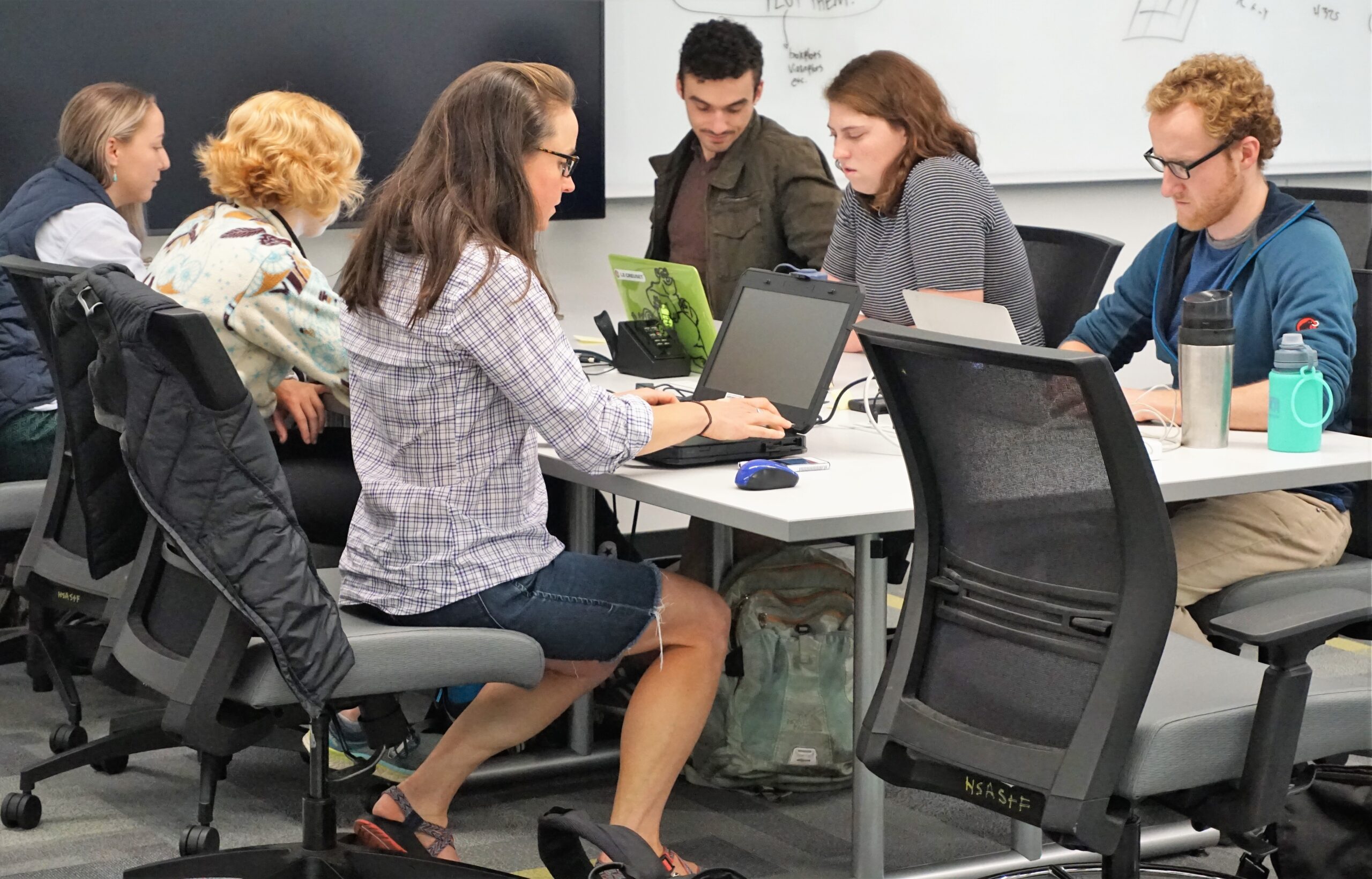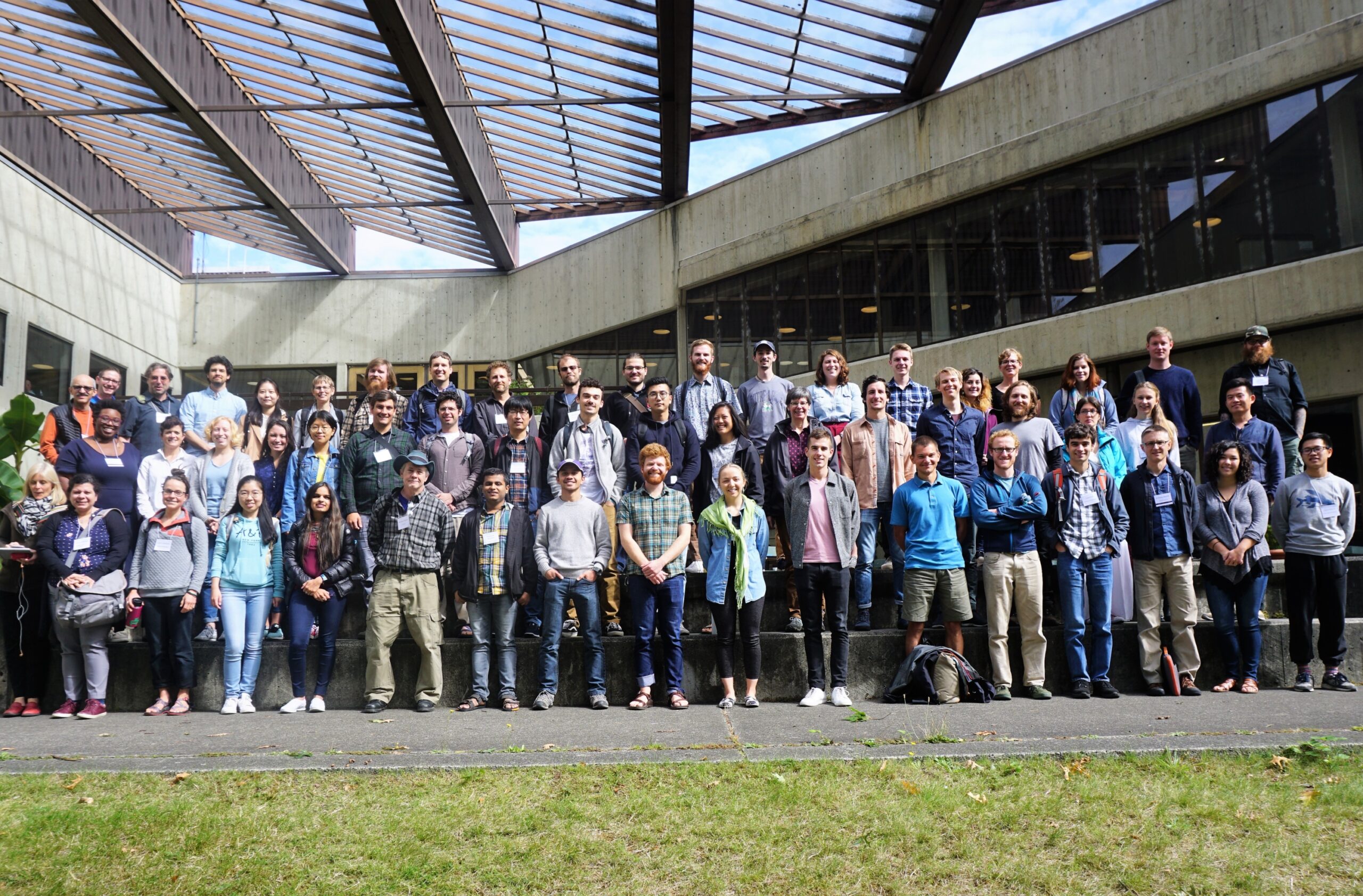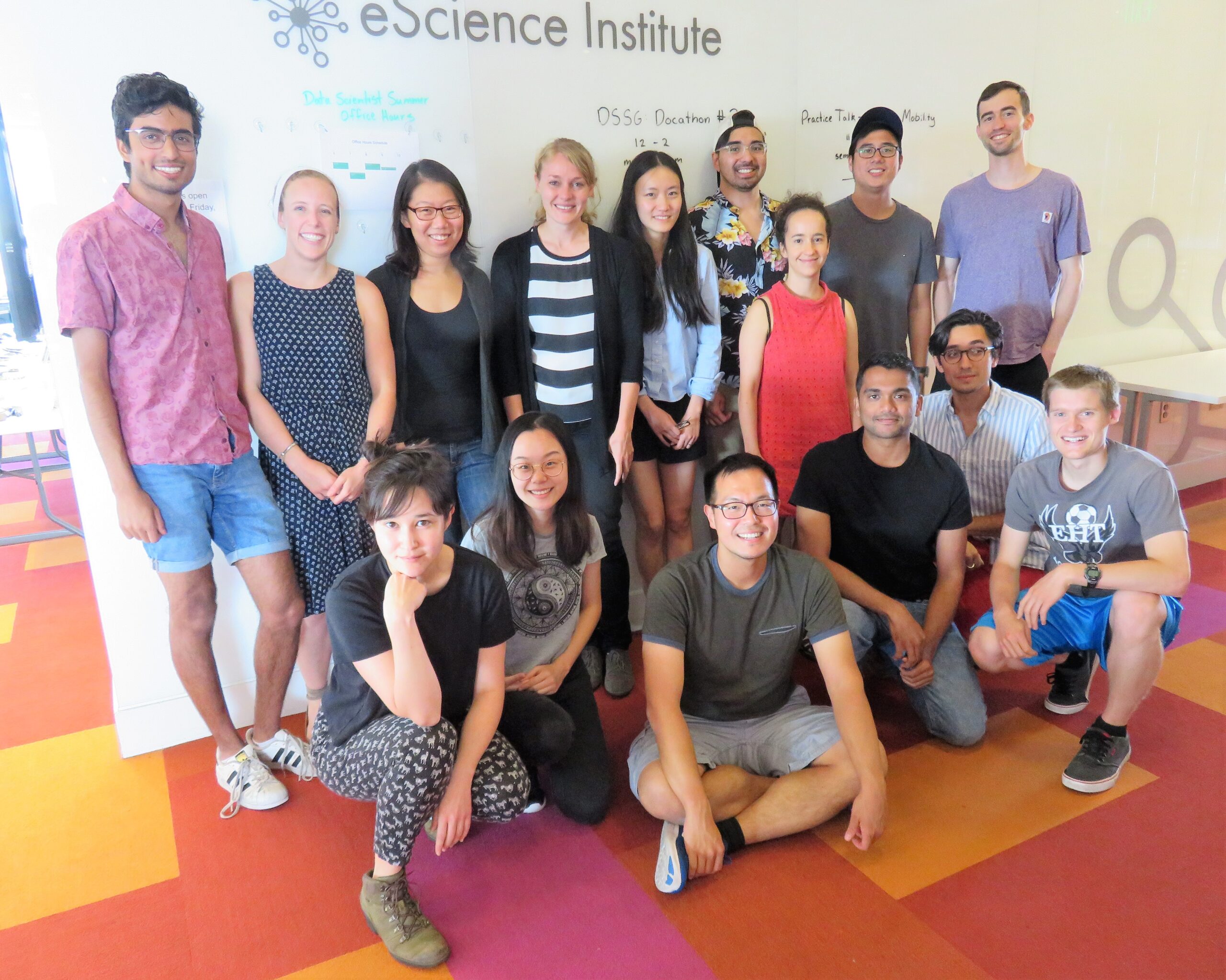Category: News
-
Data Then and Now: Call for invited speakers

We are soliciting applications for guest speakers for a new invited lecture series at the University of Washington that resides at the intersection of data science and Science and Technology Studies (STS). We know there is great and relevant scholarship from STS out there that might not have crossed our desks yet, so we are…
-
Blog: Moonlighting in oceanography: our work with the Regional Cabled Array

By Rob Fatland, UW Director of Cloud and Data Solutions Have you ever wondered why volcanic eruptions on the ocean floor don’t boil the ocean? Me, too. Of course, the ocean ought to win being much larger than the volcano. But stay! Surely a volcano would boil at least a little bit of the ocean. And…
-
eScience team attends Moore/Sloan Summit

By Robin Brooks Over 100 people attended the Moore/Sloan Data Science Environments (MSDSE) Annual Summit, which took place in Park City, Utah, Oct. 10 – 13. This short conference allows university faculty and staff from the UW, New York University Center for Data Science, and Berkeley Institute for Data Science who are involved with the MSDSE…
-
Teams receive Department of Energy funding

Two research teams have received funding from the Department of Energy (DOE). Working with researchers from Iowa State, data science fellow Jim Pfaendtner (UW Chemical Engineering) and eScience Director of Research David Beck (UW Chemical Engineering) will integrate the chemistry of biomass conversion, reaction network analysis and data science to create a systematic process for identifying novel…
-
UW researchers are changing the way we use satellite observations of Earth

The University of Washington, along with collaborators from the National Center for Atmospheric Research (NCAR), Anaconda, and Element84 have just been awarded a $1.5 million grant from the National Aeronautics and Space Administration (NASA) to develop new approaches for using satellite observations of Earth. The team will work with the Pangeo Project, a community effort…
-
Geohackweek attendees offer observations

Dozens attended the 2018 Geohackweek, which aims to foster community building, peer learning and the exploration of new data science tools in a collaborative and welcoming learning environment. We asked participants to share their thoughts on this popular annual event, and received the following responses, lightly edited. F. Patricia Medina Overall, my experience in Geohackweek was…
-
Dozens attend third annual Geohackweek

By Anthony Arendt, Geohackweek Co-Organizer The University of Washington’s eScience Institute hosted its third annual Geohackweek September 10 – 14, 2018. A diverse mix of over 50 participants joined us from industry, academia, government and non-profit organizations to advance our understanding of open source software tools for geoscientific research. The event was designed around the hackweek…
-
NIH grant awarded to develop MRI analysis

The National Institutes of Health have awarded the Diffusion MRI in Python (DIPY) project a three-year grant to facilitate the development of new methods for analysis of MRI data and dissemination of these methods through open source software. The grant, awarded through the Collaborative Research in Computational Neuroscience program, will fund a collaboration between researchers…
-
Oceanhackweek reflections

The eScience Institute hosted its inaugural Oceanhackweek Aug. 20 – 24. As the first of its kind, we were excited to discover how the participants felt about the event, and offered to publish their reflections. Three participants took us up on our offer; these are their insights, very lightly edited. ———— Rachel Jackson As an…

